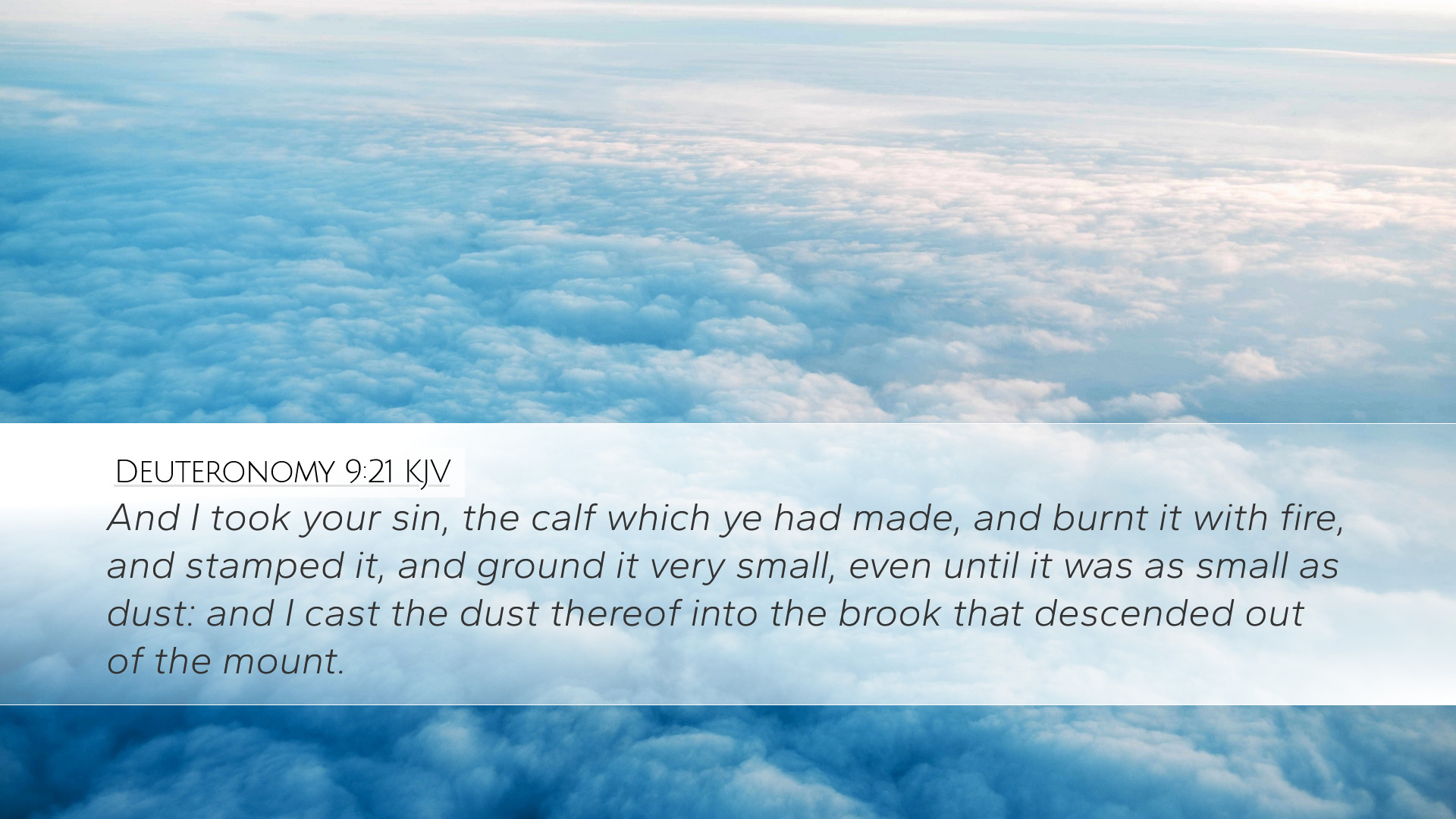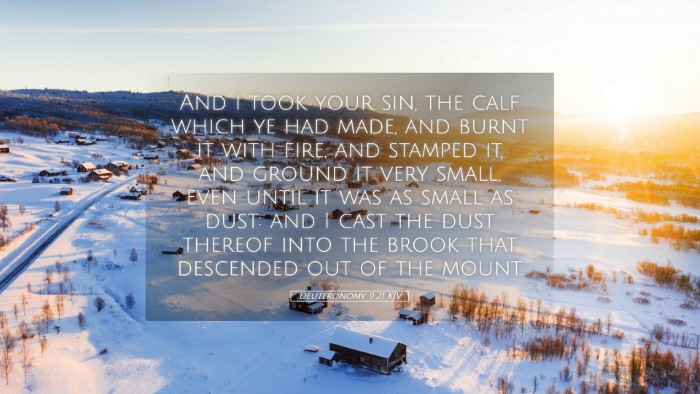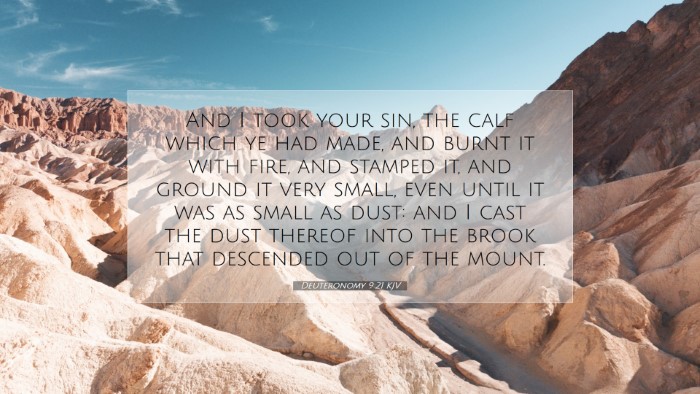Commentary on Deuteronomy 9:21
Text of Deuteronomy 9:21: "And I took your sin, the calf which ye had made, and burnt it with fire, and stamped it, and ground it very small, even until it was as small as dust: and I cast the dust thereof into the brook that descended out of the mount."
Introduction
In this verse, we witness a significant moment in Israel's history, reflecting God's anger and Moses' intercession on behalf of the people. The episode demonstrates the consequences of idolatry and disobedience, as well as God's extraordinary patience and mercy.
Contextual Analysis
Deuteronomy is a reiteration of the Law given to the Israelites, preparing them to enter the Promised Land. As Moses recounts their history, he notes their disobedience, particularly in the incident of the golden calf. This verse serves as a key reminder of their failure and the righteousness of God's judgment.
Moses' Intercession
Moses acts as a mediator, capturing the essence of his leadership role. He not only recounts the sin of the people but takes responsibility and actively destroys the source of their sin. As Matthew Henry notes, "Moses took the calf which they had made, indicating the seriousness of their sin and the necessity for radical action." The act of burning, grinding, and scattering reflects a complete repudiation of their idolatry.
Symbolism of Destruction
The grinding of the idol "even until it was as small as dust" symbolizes total destruction and the eradication of false worship. Barnes comments, “By this act, Moses not only destroys the physical idol but also represents a purification of the people’s spiritual life,” emphasizing the need for repentance and a return to true worship.
The Fire of Judgment
Fire is a significant biblical symbol representing divine judgment. Adam Clarke elaborates, “The burning of the idol serves as a metaphor for God's judgment against sin; it illustrates that the purity of worship requires the complete destruction of all that distracts from God.” The casting of the dust into the brook further signifies the removal of sin from among the people, signifying a fresh start.
Lessons for Today
- The Severity of Idolatry: The story warns modern believers about the dangers of idolatry, whether physical idols or contemporary distractions that take the place of God.
- Responsibility for Sin: Like Moses, leaders and believers must take responsibility for their actions and intercede for others, acknowledging sin and seeking restoration.
- Radical Repentance: The process of repentance often requires radical action—a true turning away from sin that involves tangible steps, as demonstrated by Moses’ actions.
- God’s Mercy and Judgment: This verse encapsulates the balance of God's holiness and mercy. While God judges sin, He also provides a path to redemption and restoration for His people.
Conclusion
Deuteronomy 9:21 serves as a powerful reminder of the seriousness of sin, the necessity of radical repentance, and the profound implications of idolatry. It challenges contemporary believers to examine their hearts and communities for anything that detracts from their allegiance to God, urging them toward a deeper commitment to His holiness and righteousness. Through Moses' actions and the destructive eradication of the idol, we are called to reflect the same zeal for God in our own lives.


